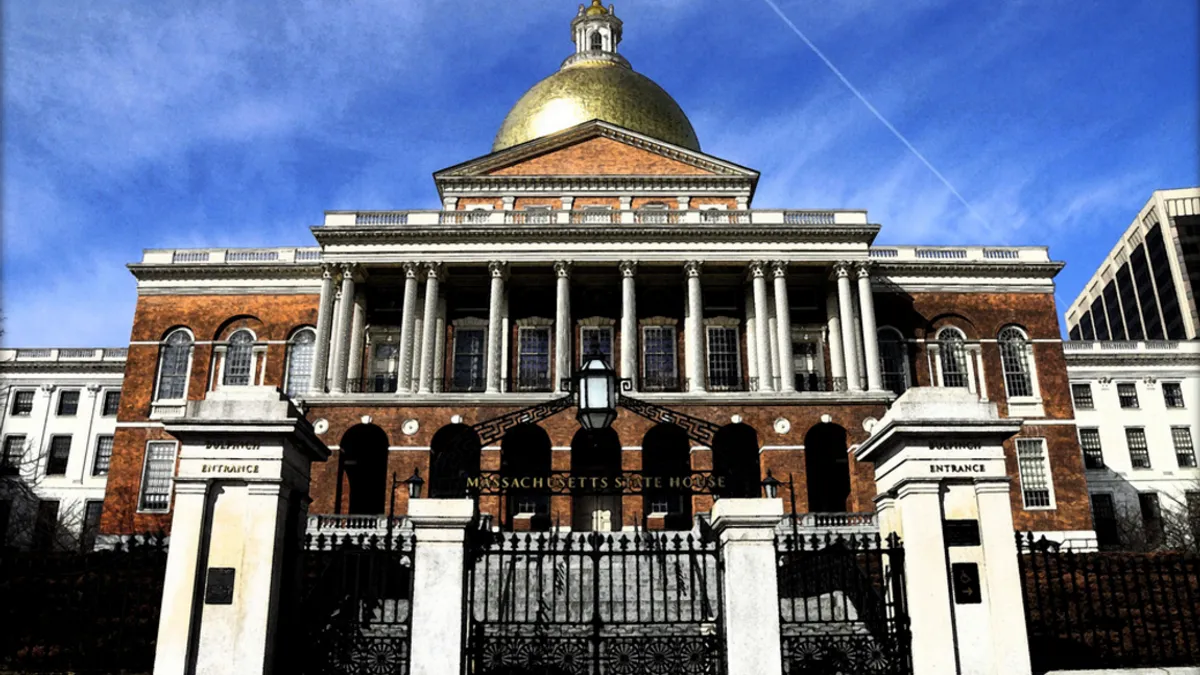Dive Brief:
- Massachusetts' debate over net metering helped spike renewable companies' lobbying efforts, according to an Associated Press review of state lobbying records.
- Almost two dozen clean energy companies spent $1.5 million in 2015, a large jump from the five companies who did lobbying work in 2010. Much of last year's spending aimed to boost support for lifting net metering caps, which solar companies argued was holding back the industry in the state.
- Gov. Charlie Baker (R) last month signed a compromise bill lifting Massachusetts' solar net metering cap and lowering remuneration rates for large-scale systems.
Dive Insight:
The changing energy landscape in Massachusetts has upped the stakes for the renewable power sector, and spurred 23 green energy companies to spend money on lobbying efforts last year.
SolarCity, for instance, spent $220,000 in state lobbying efforts in 2015, according to the Associated Press. The year before, the largest solar installer in the nation spent just $126,000 on lobbying in Massachusetts.
Almost $100,000 of the 2015 spend went to "increasing support within the House of Representatives for raising the net metering caps by recruiting and organizing constituents from each Representative's district," SolarCity wrote in a lobbying report obtained by the Associated Press.
Last year, a split in the legislature left the solar industry in limbo as lawmakers from both chambers couldn't come to an agreement on how to compensate distributed solar as utilities hit their net metering caps, which stalled solar projects.
Last month, Baker signed the resulting bill as divided lawmakers agreed on a compromise, which lifted the net metering caps for private and public projects by 3%. Some critics, however, argue it is a short-term fix the state will likely revisit, as Massachusetts has raised its cap before without substantial net metering reform.
Not all of the 2015 lobbying was focused on solar issues, however. AP reports Offshore Wind Massachusetts spent almost $200,000 lobbying for offshore projects, and Bay State Hydropower Association spent nearly $44,000.














